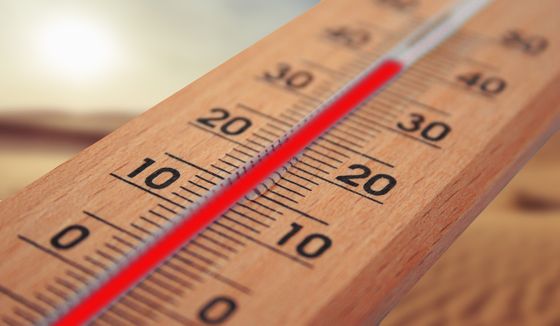'Meat heat exceeds the limits of the human body in areas where billions live in this century,' a meteorologist warns

by
A long time after the need to combat global warming has come to the fore, meteorologists have warned that temperatures will exceed human limits in regions where billions of people live during this century.
Heatwave: think it's hot in Europe? The human body is already close to thermal limits elsewhere
https://theconversation.com/heatwave-think-its-hot-in-europe-the-human-body-is-already-close-to-thermal-limits-elsewhere-121003
It was revealed by the Copernicus Program, an Earth observation plan using satellites, that 'June 2019 is the hottest in June in history of observation.' Furthermore, in Paris, France, the temperature reached 42.6 ° C on July 25, 2019, and the observation record has been updated for the first time in 72 years , and the rise in temperature is being discussed mainly in Europe.
June 2019 turns out to have been the hottest in June in history-GIGAZINE

Therefore, Tom Matthews, a lecturer in meteorology at Loughborough University in the United Kingdom, seems to have explored the heat that the human body can withstand from the point of view of meteorology.
The average human body temperature is around 36 ° C, and heat is dissipated from the body surface as long as the temperature is lower than this, but when the temperature reaches 35 ° C, the heat hardly escapes from the body. Then, the cooling system of the human body relies on perspiration, but according to Matthews, the limit of the cooling capacity by perspiration is ' wet bulb temperature ' 35 degrees.

by
Wet bulb temperature is the temperature measured by wrapping the thermometer with a damp cloth, etc., and is the temperature standard used when determining humidity as compared to the so-called dry bulb temperature that represents ordinary air temperature. Matthews adopted wet bulb temperature because the human body regulates body temperature by sweating, so it is affected not only by temperature but also by humidity.
The average humidity in Japan is about 60%, but since the wet bulb temperature reaches 35 ° C at a temperature of about 43 ° C, this 43 ° C or so is called 'the temperature of the human body's limit in Japan' proposed by Matthews. It will be.
As of 2019, there are hardly any areas where the wet bulb temperature has reached 35 degrees, but in parts such as parts of China , South Asia , and the Persian Gulf near the Middle East, this temperature is approaching at a glance. The wet weather temperature reaches 35 degrees in areas where billions of people live during this century.

by Fabio Partenheimer
While relying on air conditioning is also a hand , air conditioning has the problem of consuming a great deal of power. According to one estimate , 'the demand for energy from air conditioners will be tripled by 2050,' and it can be imagined that global thermal power will be further accelerated if thermal power plants around the world are actively producing energy. It is not difficult to
Matthews' simulation of a scenario where this happens with his colleagues shows that if the average temperature rises more than 4 degrees before global warming begins, it will strike Dominica and Puerto Rico in 2017 and cause unprecedented damage. It has been found that a hurricane of the hurricane Maria class occurs every year.
Matthews says, 'Protecting from heat will be as important a priority as securing clean water from now on,' and global efforts will be needed to avoid global warming. I'm ringing a warning bell.
Related Posts:
in Science, Posted by log1l_ks







